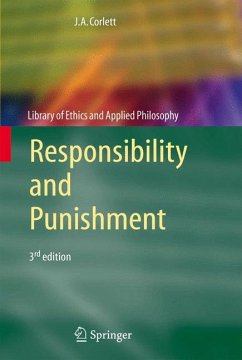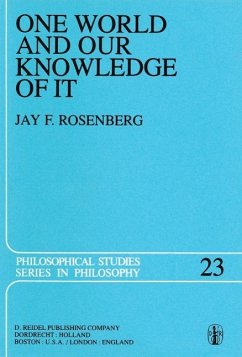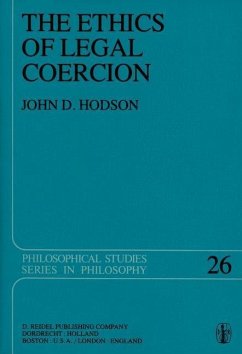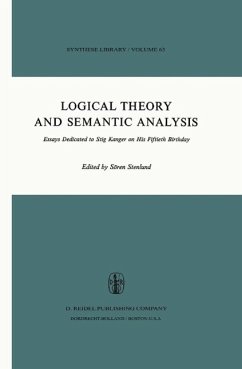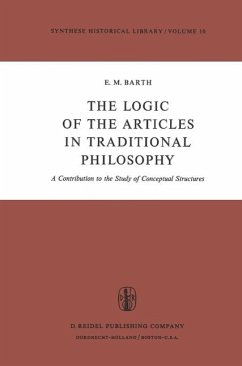
Doing the Best We Can (eBook, PDF)
An Essay in Informal Deontic Logic
Versandkostenfrei!
Sofort per Download lieferbar
72,95 €
inkl. MwSt.
Weitere Ausgaben:

PAYBACK Punkte
36 °P sammeln!
Several years ago I came across a marvelous little paper in which Hector-Neri Castaneda shows that standard versions of act utilitarian l ism are formally incoherent. I was intrigued by his argument. It had long seemed to me that I had a firm grasp on act utilitarianism. Indeed, it had often seemed to me that it was the clearest and most attractive of normative theories. Yet here was a simple and relatively uncontrover sial argument that showed, with only some trivial assumptions, that the doctrine is virtually unintelligible. The gist of Castaneda's argument is this: suppose we understand act...
Several years ago I came across a marvelous little paper in which Hector-Neri Castaneda shows that standard versions of act utilitarian l ism are formally incoherent. I was intrigued by his argument. It had long seemed to me that I had a firm grasp on act utilitarianism. Indeed, it had often seemed to me that it was the clearest and most attractive of normative theories. Yet here was a simple and relatively uncontrover sial argument that showed, with only some trivial assumptions, that the doctrine is virtually unintelligible. The gist of Castaneda's argument is this: suppose we understand act utilitarianism to be the view that an act is obligatory if and only if its utility exceeds that of each alternative. Suppose it is obligatory for a certain person to perform an act with two parts - we can call it 'A & B'. Then, obviously enough, it is also obligatory for this person to perform the parts, A and B. If act utilitarianism were true, we appar ently could infer that the utility of A & B is higher than that of A, and higher than that of B (because A & B is obligatory, and the other acts are alternatives to A & B).
Dieser Download kann aus rechtlichen Gründen nur mit Rechnungsadresse in A, B, BG, CY, CZ, D, DK, EW, E, FIN, F, GR, HR, H, IRL, I, LT, L, LR, M, NL, PL, P, R, S, SLO, SK ausgeliefert werden.








